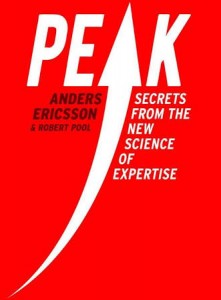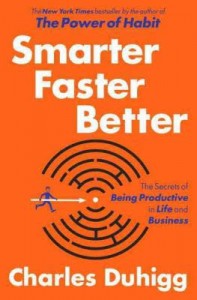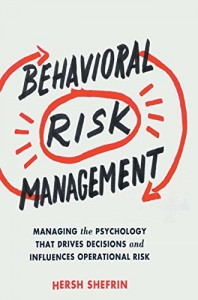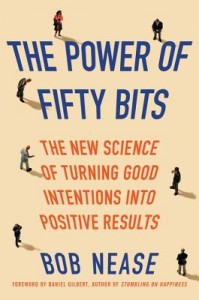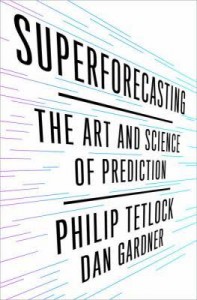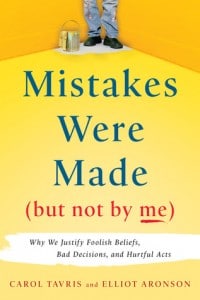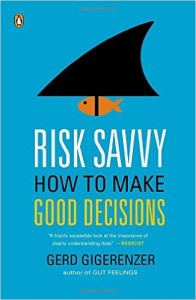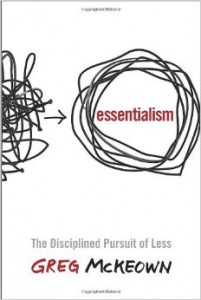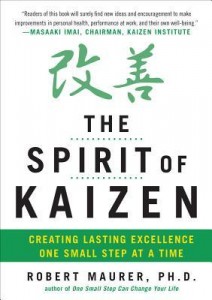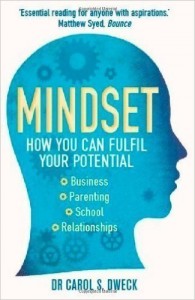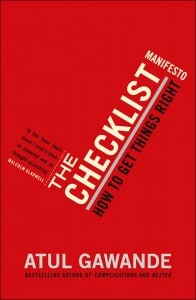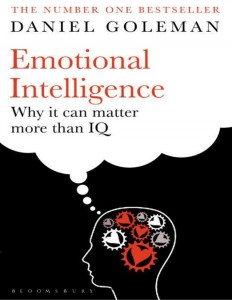Share post
After a summer of reading and lots of great suggestions from you, we’re updating our popular guide to behavioral literature, The Essentia Recommended Reading List. Some of the titles below are recent, whilst others are classics you may recognize. Let us know if we’re missing your favorite!
Peak: Secrets from the New Science of Expertise
by Anders Ericsson & Robert Pool (2016)
Talent is made, not born. Peak presents the reader with a powerful approach to learning and mastering new skills, and shows that what separates “gifted” people from the rest of us isn’t innate talent but simply dedicated, purposeful practice. We all have the seeds of excellence within us; we just need to take a deliberate approach to nurturing it.
Smarter Faster Better: The Secrets of Being Productive
by Charles Duhigg (2016)
Duhigg explores the science of productivity, and why managing how you think is more important than what you think. The author focuses in eight key productivity concepts that explain how highly productive people view the world and their choices, how anyone can learn to succeed with less struggle, and how to get more done without sacrificing what we care about the most.
Behavioral Risk Management: Managing the Psychology That Drives Decisions and Influences Operational Risk
by Hersh Shefrin (2016)
Professor Shefrin is one of behavioral finance’s pioneers. In this book he argues that the most important risk management disasters of the new millennium all have psychological pitfalls at their root. The examples he gives illustrate a series of do’s and don’ts for addressing psychological issues in risk management.
The Power of Fifty Bits: The New Science of Turning Good Intentions into Positive Results
by Bob Nease (2016)
Of the ten million bits of information our brains process each second, only fifty are devoted to conscious thought. Nease and his team use this insight to propose a range of processes and programs (for marketers, health companies, HR departments, and even parents) that can be used to help capture those fifty bits of awareness and change people’s behavior.
Superforecasting: The Art and Science of Prediction
by Philip E. Tetlock & Dan Gardner (2016)
In Superforecasting, Tetlock and Gardner show that some people are much better at forecasting than others, and most importantly, that predicting the future is not a divine gift but a skill that can be practised and improved. The book gives advice on how to overcome our biases and become a Superforecastor.
Mistakes Were Made (But Not by Me): Why We Justify Foolish Beliefs, Bad Decisions, and Hurtful Acts
by Carol Tarvis & Elliot Aronson (2015)
Two distinguished psychologists look at the role of self-justification in human life, explaining how and why we create fictions that absolve us of responsibility and restore our belief in our intelligence, moral rectitude, and correctness. They assess the potential repercussions of such courses of action and reveal how they can be overcome.
Risk Savvy: How To Make Good Decisions
by Gerd Gigerenzer (2015)
Numbers may not lie, but they are certainly often misunderstood. Gigerenzer uses easy to understand statistical analyses to show that people make bad decisions because they misunderstand risk. With insights based on psychology, sociology and maths, this book is a remedy to our collective information overload and a guide to making smart and confident decisions in the face of uncertainty.
Essentialism: The Disciplined Pursuit of Less
by Greg McKeown (2014)
There are far more activities and opportunities in the world than we have the time and resources to invest in. Only when you give yourself permission to stop trying to do it all, can you make your highest contribution towards the things that really matter. McKeown offers both a manifesto and a manual on how to focus deliberately on the vital few priorities that really count.
The Spirit of Kaizen: Creating Lasting Excellence One Small Step at a Time
by Robert Naurer (2012)
Kaizen means “change for better”. Maurer offers guidance on implementing small, incremental steps that can have a big impact in reaching your goals. Kaizen is more than a world-class management practice; it is a technique that starts with awareness and desire in our minds, and leads to actions and changes that can be lasting and powerful.
Mindset: How You Can Fulfil Your Potential
by Carol Dweck (2012)
It’s not just our talent and abilities that bring us success, but whether we approach them with a fixed or growth mindset. In a growth mindset, people believe that their most basic abilities can be constantly developed through hard work and dedication, instead of considering them as fixed traits. This view creates a love of learning and resilience that are essential for great accomplishment in every discipline.
The Checklist Manifesto: How to Get Things Right
by Atul Gawande (2011)
Gawande makes the case that checklists can help us manage the extreme and increasing complexities of the modern world. He explains how checklists actually work to prompt striking and immediate improvements, and he follows the checklist revolution into different fields including investment banking.
Emotional Intelligence: Why it Can Matter More Than IQ
by Daniel Goleman (1996)
Our view of intelligence is quite narrow and ignores important abilities that determine how well we do in life. Goleman challenges this view of what it means to be intelligent and offers a series of insights that help us increase our level of emotional intelligence, and look with fresh eyes at matters such as self-control, the ability to motivate oneself, zeal and persistence.


